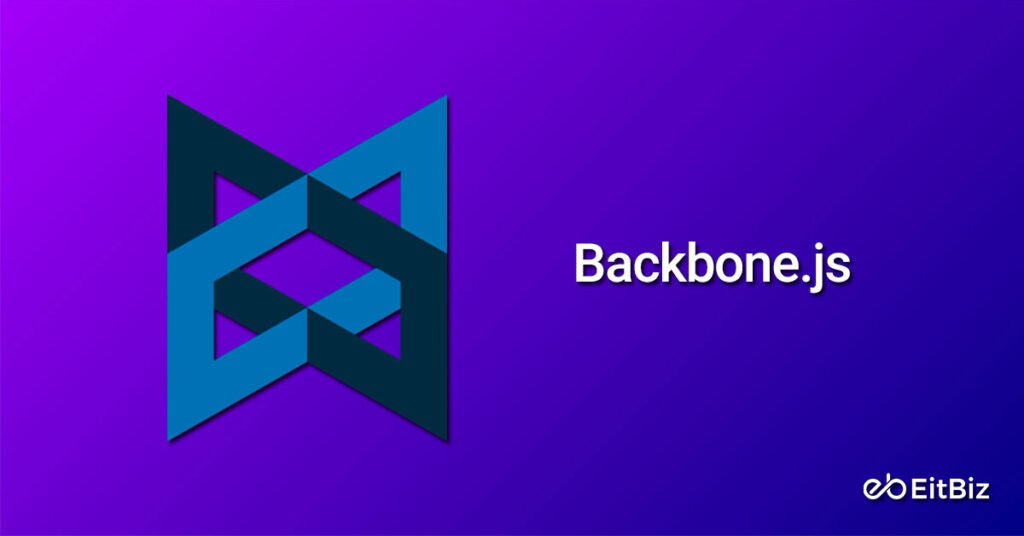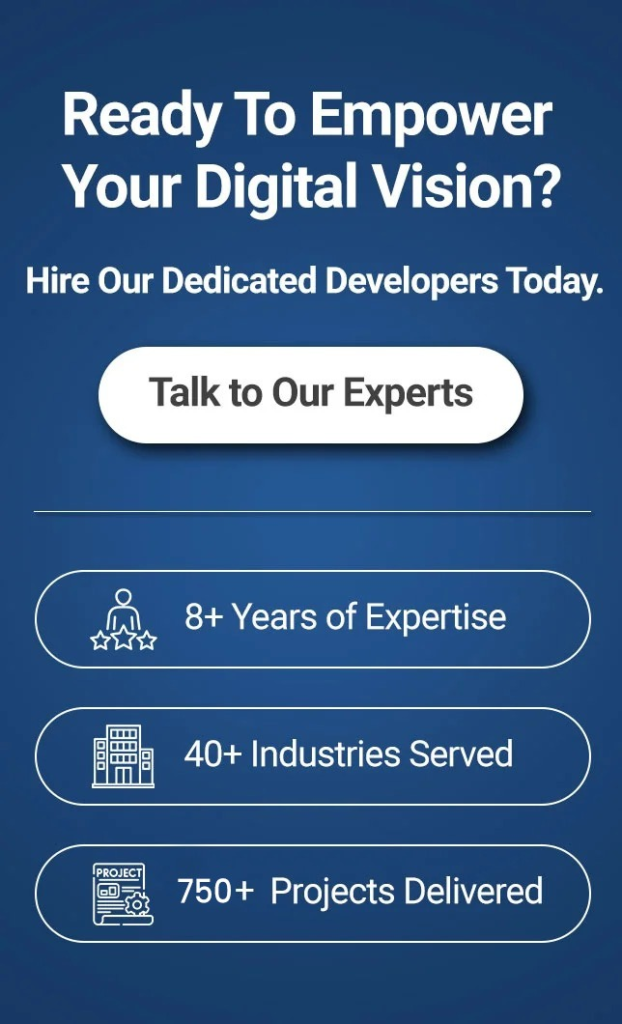So, you’re all set to give wings to your small business, right?
Well, that’s why, you have landed right here, looking to build solid and engaging single-page apps (SPAs)!
Whether you want to build a single page application or an enterprise-grade application, seamless user experience and lightning-fast performance are key!
From quick loading and seamless navigation to state-of-the-art features, SPAs are an ideal solution for building customer-oriented web apps.
But not all SPAs are created equal! Choosing the app’s framework can make or break your app development process.
In this post, we’ll discuss the top single-page frameworks essential for web app development!
But before that, let’s understand what SPA exactly mean!
Single Page Application: What is it?
To put it simply, an SPA (Single-page application) is a web app implementation that loads only a single web document and displays it to the user. After that, it efficiently uses the JavaScript APIs to update the body content of a single document.
These kinds of apps are generally preferred among small business owners or enterprises that prioritize speed and lower their overall development cost. With its unmatched security, quick debugging, and stringent testing, SPAs are garnering significant traction among businesses of all kinds.
Unlike conventional web apps that need to be reloaded every time a user prompts an action, a SPA has a single HTML web page. This is the main reason behind the efficiency, speed, and performance of the page. In the case of the latter, whenever a server receives a request from the user, only specific components are reloaded instead of additional elements. Not only does it make it easy for developers to work on its speed, but they can also implement robust security measures.
Best 5 Single-Page Frameworks for Web App Development
Let’s take a look at the top 5 single-page frameworks for web app development.
1. AngularJS

Developed by Google, AngularJS is one of the open-source JavaScript frameworks that is incredibly popular due to its simplicity, DOM rendering and data binding features. It is a multi-purpose framework, though, many people are considering the framework for building client-side applications. (A client-side application is software that runs on a computer and requests information from servers.). One of the major highlights of the framework is that it can easily boost your app’s performance without running into difficulty.
Pros:
- It comes with a wide range of features, helpful for building powerful web applications.
- Equipped with two-way data binding, the framework efficiently automates the synchronization between the model and the view.
- Angular’s component-based architecture makes applications easier to maintain and test.
- The framework is equipped with a robust dependency injection system that simplifies managing dependencies and facilitates modularity and code reusability.
Cons:
- Unlike other frameworks, there’s a steeper learning curve which does need ample time and effort to master.
- As compared to other kinds of frameworks, Angular may have a larger bundle size compared to other frameworks.
2. React.js

Another popular single-page application framework is React.js which enables developers to build exceptionally engaging user interfaces (UIs) in web applications. Developed and maintained by Facebook, the framework follows a component-based architecture where professional developers can divide UIs into reusable components to manage and create enterprise-grade UIs. Additionally, React.js efficiently leverage virtual DOM to optimize the app’s performance to an unprecedented scale.
Pros:
- One of the major highlights of Reactjs is that it helps create reusable UI components to facilitate modular and maintainable code.
- Reactjs render a virtual DOM to render efficiently and update only the necessary parts of the interface.
- React.js follows a unidirectional data flow to ensure the app’s state is maintained without any compromise.
Cons:
- React.js has a steep learning curve, which could be challenging for developers to build new component-based UI development.
- Many developers have faced issues related to smaller or simpler applications.
3. Vue.js

Have you ever thought of a framework that is known for its simplicity and ease of integration? This is where the importance of Vue.js development comes into play! The framework is equipped with a flexible core library that enables developers to adopt its features which makes it easy for developers to build small and large SPAs. One of the major highlights of the framework is that it has a data-binding system that helps developers promote the app’s reusability. The reason behind the popularity of the framework is that it has a simple learning curve and clear documentation, which makes it quite popular among developers to create a balance between its functionality and ease of navigation.
Pros:
- The framework is renowned for its simplicity and user-friendliness, which makes it easy for even novice developers to learn and implement it.
- Equipped with a reactive data binding system, it efficiently updates user interface updates in case of data modification.
- The framework offers flexible integration options, which allow developers to use it for different parts of an app.
Cons:
- Despite its popularity, Vue.js might have less adoption than its counterparts, Angular and React.
- There are fewer resources like tutorials and articles available.
4. Ember.js

Another major SPA framework for web applications is Ember.js which is an open-source JavaScript framework for building enterprise-grade apps. One of the major highlights of the framework is that it follows the Model-View-View Model (MVVM) architectural pattern which ultimately simplifies the development of scalable web applications. Furthermore, the framework is known for offering a wide set of features, including web applications URL routing, HTML templating, and server-side rendering. The major highlight of the framework is that it provides a cohesive environment for building scalable SPAs.
Pros:
- Backed by strong conventions, it provides a consistent structure for application development.
- The framework comes with a wide range of tools, including Ember Inspector, Ember CLI (Command Line Interface), and Ember Data.
- It provides a comprehensive set of features like routing, data management, and templating.
Cons:
- One of the biggest cons of Ember.js is that it has a steeper learning curve due to its conventions and complexity.
- Sometimes, the framework limits flexibility and customization options.
5. Backbone.js

Backbone.js, developed by Jeremy Ashkenas and introduced in 2010, stands as a nimble JavaScript framework. It lends a structured approach to web applications through the Model-View-Presenter (MVP) architectural pattern.
This framework prides itself on its minimalistic toolset, designed to streamline code organization and facilitate seamless data synchronization between the user interface and the server. Flexibility reigns supreme in Backbone.js, enabling developers to cherry-pick the components they require and seamlessly integrate them into their projects.
Pros:
- Backbone.js is lightweight and allows developers to choose specific components.
- It provides built-in support for syncing data between the server and the client.
Cons:
- Tools and features are scarce.
- Developers usually run into complex issues.
Conclusion
So, that’s a wrap to the top single-page application frameworks for web app development! Remember that the choice of your framework highly depends on the level of expertise, type of web app, number of web apps, and type of framework you want to use.
Planning to build a solid web app and dominate the market? If so, your search ends here!
At EitBiz, we are a leading single page app development company that offers custom web apps and app solutions to meet your niche requirements. Our talented pool of 50+ web app developers has over 8+ years of experience in delivering successful web applications for different industry verticals.
Are you all set to hire dedicated web app developers? Contact us EitBiz at +1 (812) 530- 6300 or mail us at info@eitbiz.com to discuss your app development needs! We’ll contact you shortly!
Frequently Asked Questions
1. Can I use different single-page app frameworks together?
Mixing different frameworks is possible but not recommended. It can cause problems and make things more complicated. It’s best to pick one framework that suits your project well.
2. When should I use single-page apps?
Single-page apps are great when you want quick navigation, a smooth user experience, and efficient data handling. They’re fast and can change things on the screen without reloading the whole page.
3. Is Twitter a single-page app or a multi-page app?
Twitter is a single-page app. They switched to this design in 2010, using JavaScript to handle everything on the user’s device.
4. When should I not use single-page apps?
If you need your app to work without JavaScript or in old browsers, single-page apps might not be the best choice. They rely on JavaScript to work.
5. Are single-page apps popular?
Yes, they’re popular because they give users a real-time experience. But there are other ways to do this too. Multi-page apps are another option, where each update reloads the whole page.
Author
-

Sandy K is the dynamic and visionary Director at EitBiz. With a rich tapestry of experience spanning almost 15 years, Sandy has cultivated a unique, global perspective that he brings to the forefront of EitBiz’s operations. Visit Linkedin
View all posts


![Laravel Development: Cost Breakdown, Essential Tools & FAQs [2025 Guide]](https://www.eitbiz.com/blog/wp-content/uploads/2025/04/Laravel-Development-1024x536.jpg)



